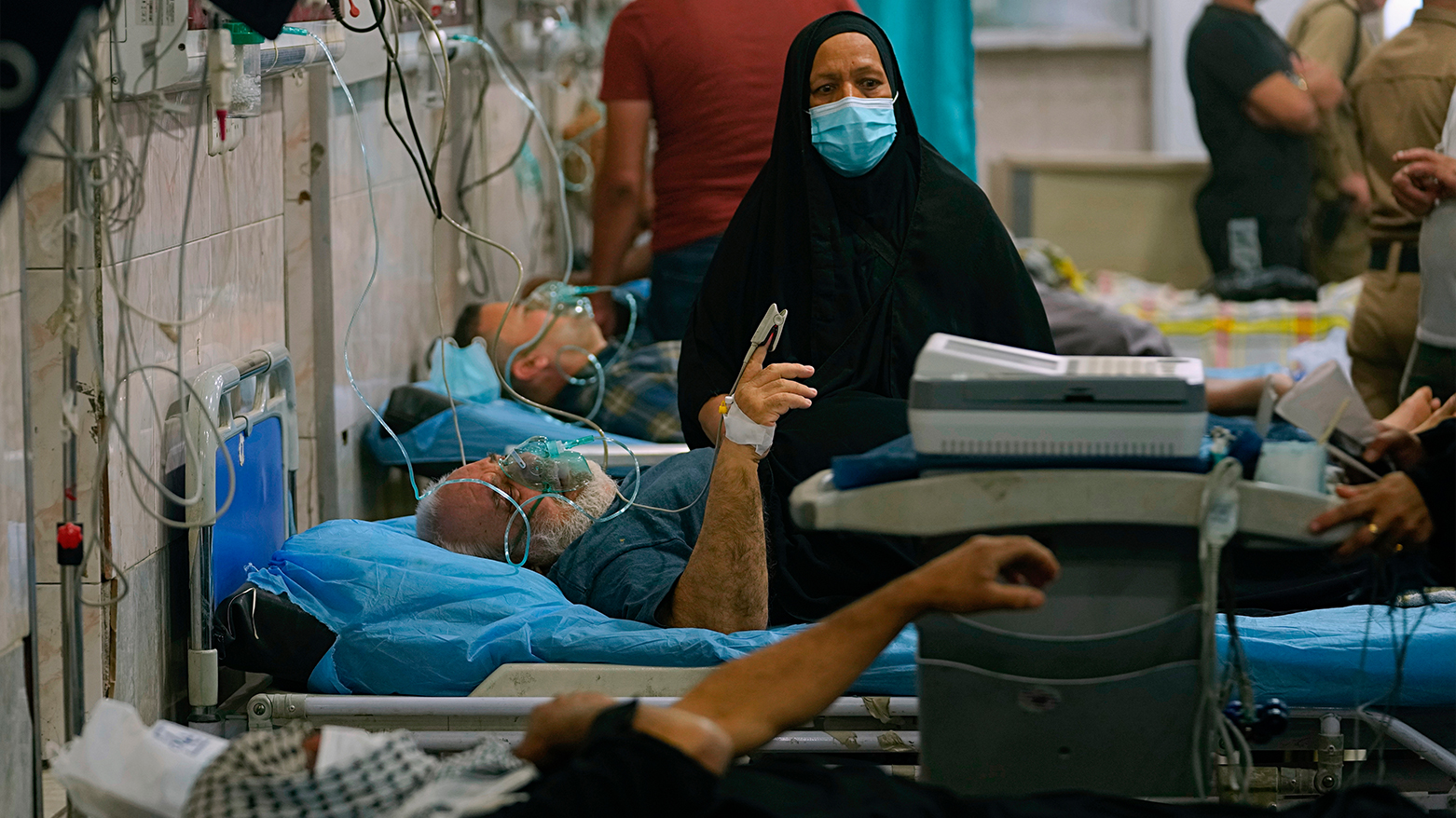Iraq Ranks 79th in Global Healthcare Systems for 2025, Lagging Behind Regional Peers
Iraq ranked 79th out of 110 countries in the 2025 CEOWORLD Health Care Index, with an overall score of 33.84. While its medical infrastructure scored relatively well, the system was dragged down by poor performance in government readiness and, most critically, the availability and cost of medicine.

ERBIL (Kurdistan24) – In a comprehensive global assessment that underscores the critical link between public health and national competitiveness, Iraq has been ranked 79th out of 110 countries in the 2025 CEOWORLD Magazine Health Care Index, a position that places it in the lower half of the global table and highlights significant challenges in delivering accessible, affordable, and high-quality medical services to its population.
The detailed report, which evaluates nations on a range of factors from infrastructure to government readiness, reveals a stark contrast between Iraq's performance and that of leading countries in both Asia and the Middle East, offering a data-rich lens into the state of the nation's healthcare ecosystem.
The 2025 CEOWORLD Health Care Index, a highly anticipated annual ranking for policymakers, investors, and corporate leaders, analyzes healthcare systems through a multi-faceted methodology.
According to the magazine, the index is built upon a careful assessment of key variables, including the quality and capacity of healthcare infrastructure, the competence and density of medical professionals, the availability and cost of essential medicines, and the government's readiness to respond to crises and invest in preventative care.
It is within this rigorous framework that Iraq achieved an overall index score of 33.84 out of a possible 100.
A closer look at the components of Iraq's score reveals a mixed but ultimately challenging picture. The country received its highest mark, 70.73 points, in the category of "Medical Infrastructure and Professionals," suggesting a foundational capacity in its hospitals, clinics, and the skills of its health workers.
However, this relative strength was significantly undermined by weaker performances in other critical areas. For "Government Readiness," which measures the state's ability to regulate effectively and manage health crises, Iraq scored 64.43 points.
The most concerning figure was in the category of "Medicine Availability and Cost," where the country received a low score of 52.88 points, indicating substantial difficulties for its citizens in accessing affordable and essential medicines.
The report places Iraq's performance in a global context, where the top ranks are dominated by nations that have made long-term, strategic investments in their healthcare systems. Taiwan leads the world in 2025, securing the number one position with a composite score of 78.72.
The magazine credits Taiwan's success to its high-performing single-payer system, which ensures universal access while integrating cutting-edge digital tools like national health insurance smart cards. Following closely in second place is South Korea, praised for its robust combination of advanced medical infrastructure and government-led health technology initiatives.
The top of the global table is heavily populated by highly developed nations. Australia and Canada hold the third and fourth positions, respectively, while a strong contingent of European countries—Sweden (5th), Ireland (6th), the Netherlands (7th), Germany (8th), and Norway (9th)—round out the top ten alongside Israel (10th).
The United States, despite spending more per capita on healthcare than any other nation, finds itself in 15th place, a position the magazine describes as a "striking paradox" where high costs do not translate into superior overall outcomes.
When viewed within the context of the Arab world, Iraq's 79th global ranking places it 12th among its regional peers.
The United Arab Emirates leads the Arab nations, followed by Saudi Arabia in second place and Tunisia in third. This regional comparison highlights the significant gap between Iraq's healthcare system and those of its wealthier Gulf neighbors, who have invested heavily in building world-class medical infrastructure and attracting top-tier talent.
At the other end of the regional spectrum, Libya is ranked last among the Arab countries included in the index.
Iran is ranked 92nd according to the report, scoring 28.2 in overall Health Care Index.
The CEOWORLD report frames healthcare not merely as a social issue but as a "core pillar of national competitiveness, economic stability, and human capital development." For global executives and investors, the rankings serve as a strategic map, providing actionable insights into country risk assessment and investment planning.
The report argues that nations with better healthcare systems attract a healthier and more resilient workforce, which in turn enhances productivity and reduces operational risk for businesses. Conversely, countries with underperforming systems, such as El Salvador which ranked last at 110th, present macroeconomic risks, including workforce instability and political volatility.
For Iraq, the 79th-place ranking is a sobering assessment that points to the urgent need for comprehensive reform and sustained investment in its healthcare sector.
While the score for infrastructure and professionals suggests a solid base to build upon, the significant weaknesses in government readiness and, most critically, in the accessibility and affordability of medicine, are holding the country back.
These challenges are not merely statistical points in a global index; they represent daily realities for millions of Iraqi citizens who struggle to access the care they need.
As the report concludes, healthcare is no longer just a domestic concern but a strategic asset that shapes global competitiveness. For Iraq to improve its standing and, more importantly, the well-being of its people, a concerted and strategic focus on strengthening every pillar of its healthcare system will be essential.
